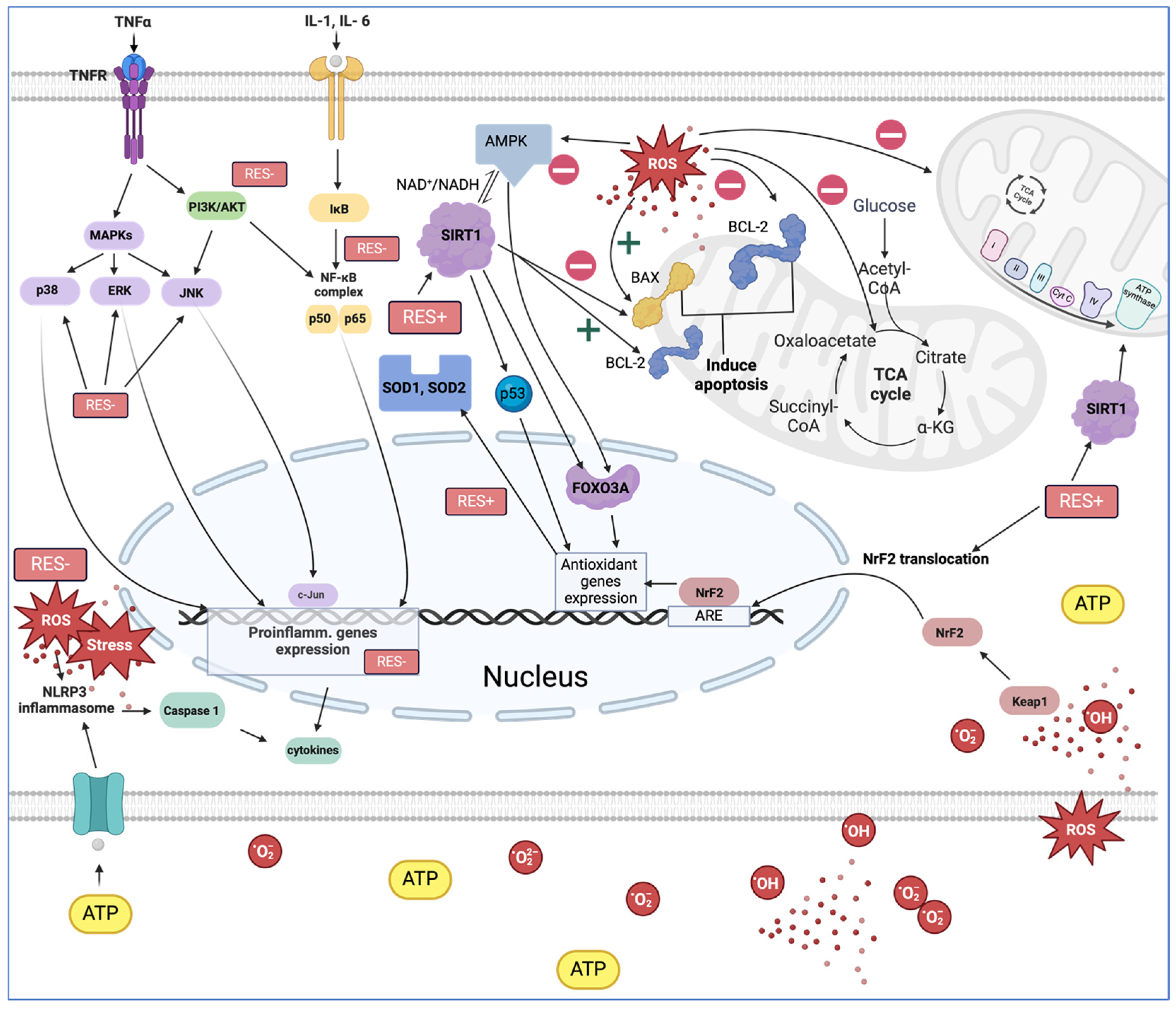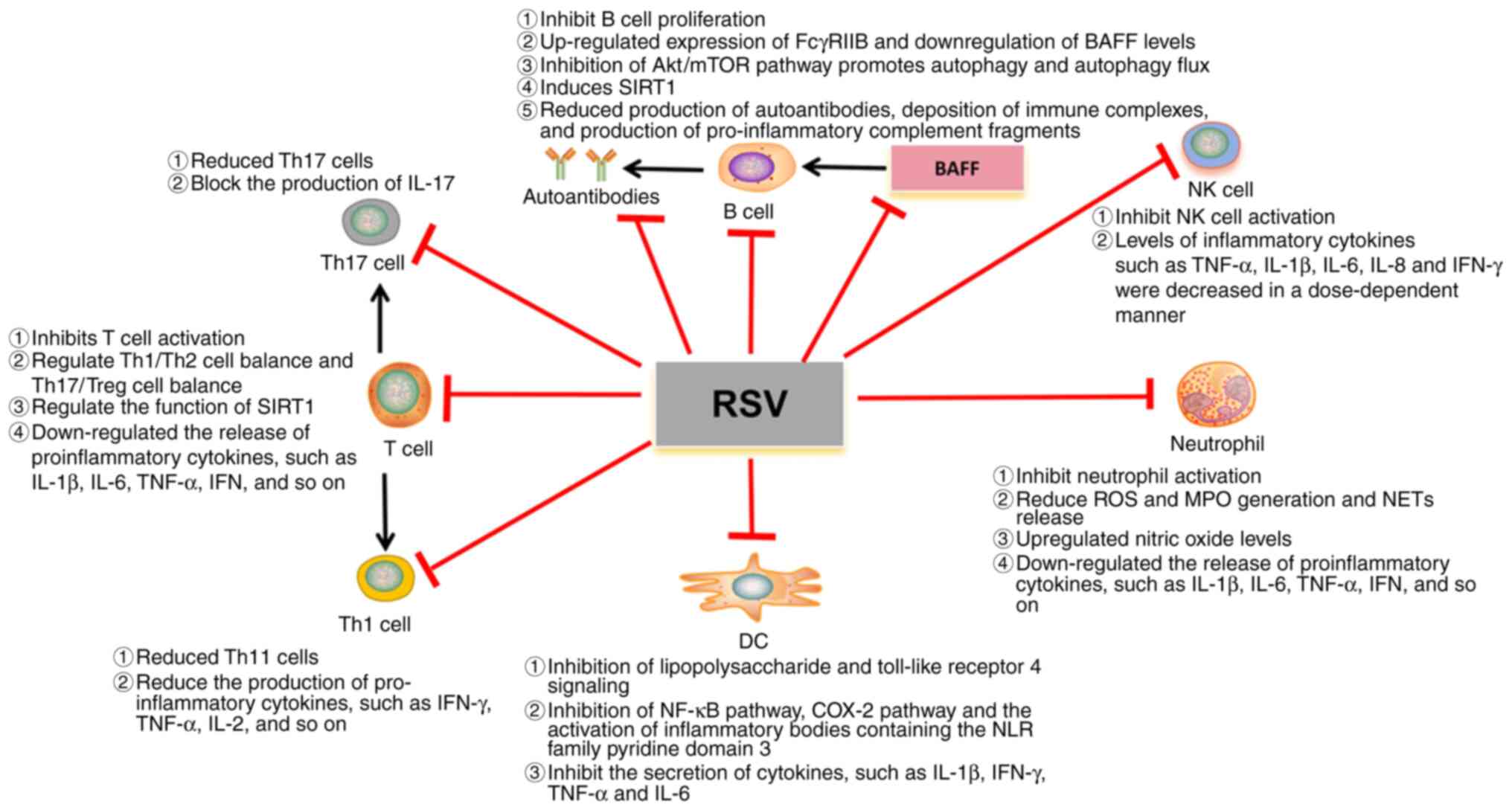Reference




Moonshot's Answer
Resveratrol has been shown to have significant effects on lymphocyte proliferation and cytokine release. According to various studies, resveratrol inhibits cell proliferation, cell-mediated cytotoxicity, and cytokine production, at least in part through the inhibition of NF-kappaB activation [1] [2]. It also reduces the proliferation of PHA-stimulated PBMCs, suggesting a direct effect on lymphocytes [3]. Resveratrol may promote survival of activated B lymphocytes by upregulating expression of Bcl-2, which can act as an inhibitor of apoptosis as well as a cell proliferation regulator [4]. Furthermore, it can inhibit T cell activation and reduce cytokine production, which could potentially prevent autoimmune disease progression [5]. The suppressive effects on cytokine secretion and proliferation of CD4+ T-cells appear to be based on partial inhibition of NF-kB activation [6]. Resveratrol also decreases oxidative burst capacity and alters stimulated leukocyte cytokine production in vitro [7]. These findings indicate that resveratrol can modulate the immune response by affecting lymphocyte proliferation and cytokine release, which may have implications for the prevention and treatment of various immune-related diseases.

Follow Up
Related
How do proinflammatory cytokine levels differ in vascular injury and Alzheimer's disease?
What is the relationship between cytokine levels and systemic sclerosis involvement?
What are the key findings about cytokine production in elderly people?
What does the serological landscape of cytokines look like in cutaneous melanoma?
How does cytokine production by CD4+ cells change in centenarians?